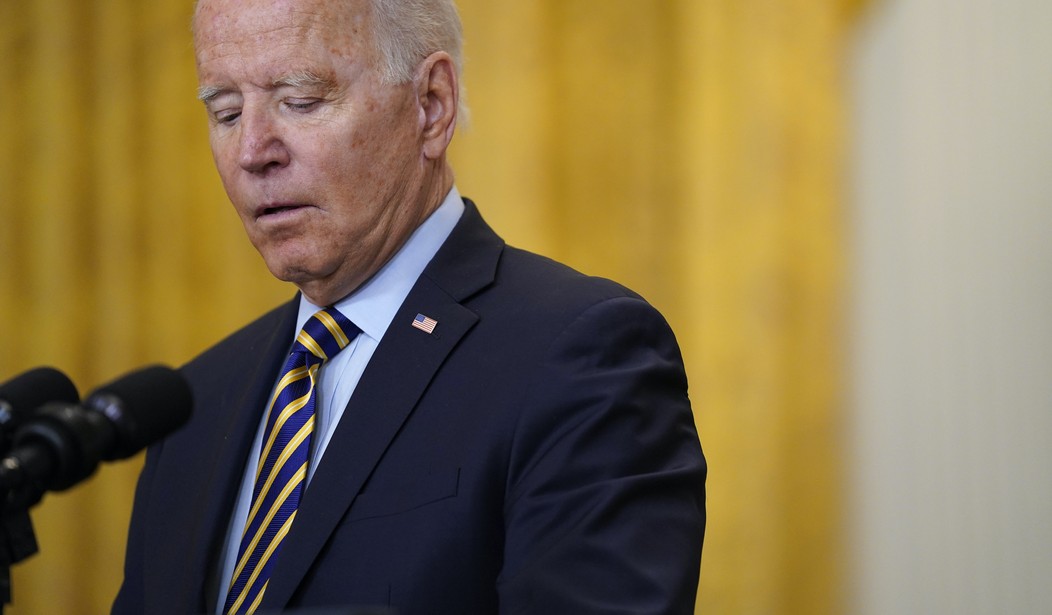Is the stalled-out promise from Joe Biden to make America the “arsenal of vaccines” to the world the result of “a lack of cash”? Come on, man. Politico reports that the Biden administration has a billion-dollar hole in its budget for global COVID-19 vaccination, but that’s a bit rich after the massive $2 trillion COVID relief bill the White House muscled through Congress four months ago:
At issue is more than a billion dollars the cash-strapped aid agency was supposed to use to help needy countries store, transport and administer Covid vaccines. In June, the White House diverted the money to pay for 500 million additional doses of Pfizer’s shot, according to three senior administration officials with knowledge of the situation. But those doses won’t arrive for months, and in the meantime USAID officials argue they will struggle to help countries secure resources to distribute the shots and obtain Covid drugs and personal protective gear.
The incident points to a growing sense of frustration at the agency at a time when the Biden administration has begun positioning the U.S. as a leader in the global pandemic response. Fulfilling the White House’s pledges has fallen largely on USAID, an agency that often finds itself on the losing end of Washington funding battles.
Officials who spoke to POLITICO for this story requested anonymity because they were not authorized to talk publicly about the matter. They also feared their words would stoke tensions within the administration while the U.S. is trying to maintain its status as a leading world donor in Covid-19 assistance while fighting surging cases at home.
It’s not just the money, as one discovers in the very next paragraph. The bigger problem is the lack of a “strategic plan,” combined with an apparent lack of focus at the White House:
“If we and others are not investing adequately in a forward way on readiness we’re going to have a catastrophe on our hands with doses piling up at the gate,” said Stephen Morrison, a global health expert at the Center for Strategic and International Studies. “We need a strategic plan. We need some sort of leadership structure that doesn’t rob Peter to pay Paul.” …
Top White House officials eventually decided that USAID would foot the $3.5 billion bill, according to three senior administration officials familiar with those conversations. Two billion dollars would come from money Congress set aside last year in a relief package for USAID to donate vaccine through COVAX, the global vaccine aid program. The rest — $1.5 billion — would be taken from funds appropriated to USAID in March to help countries fight Covid-19, including by distributing vaccines, a senior administration official said last month.
So what’s the problem? The White House announced almost two months ago that its master plan to distribute vaccines was to outsource the effort to COVAX — not a bad idea, but an obvious option that could have been adopted from the first day of the Biden administration. That would have at least saved a few months of attempting to recreate the wheel, even if the US might have gotten more diplomatic benefit (and efficiency) from controlling the distribution ourselves. At that point, the funding was in place for both the outsourcing and USAID’s efforts to firm up the infrastructure of recipient nations.
Having made the decision to outsource it, however, the Biden administration then diverted the USAID money to buy more vaccine doses — 500 million of them from Pfizer. That’s supposed to cover a major COVAX donation, but it’s apparently separate from the $2 billion assigned to vaccine acquisition in some way. Meanwhile, as Politico notes, the administration is also handling direct distribution of tens of millions of doses, which suggests that it’s trying to eat its cake and have it too while confusing the entire project.
At any rate, let’s mull over the idea that $1.5 billion in missing funding is supposedly snarling this project four months after Congress authorized $1,900 billion dollars in emergency funding. That bill authorized the following expenditures specifically for COVID-19 response, among many others:
- $50 billion for FEMA vaccine distribution
- $47.8 billion for “COVID-19 testing, mitigation, and transmission prevention, including diagnosis, tracing, and monitoring.”
- $30.5 billion for mass-transit system subsidies
- $6 billion for vaccine production
- $7.66 billion for subsidies to states and localities for pandemic-management personnel
And so on. With deaths still accelerating around the globe due to a lack of vaccines, wouldn’t it make more sense to temporarily peel off that $1.5 billion from FEMA or the testing functions — or better yet, the state subsidies — to get vaccines out to foreign hotspots to prevent more variants as soon as possible? Congress can easily choose to replenish those funds later; the global response is much more urgently needed, for obvious reasons.
This is what is meant by the lack of a strategic plan, or any kind of plan at all. This has all the earmarks of an administration on auto-pilot, where no one is considering priorities or bucking the bureaucracy to bring the necessary focus in an emergency. At this point, the Biden administration can’t even punt right, and that has nothing to do with a supposed lack of cash.







Join the conversation as a VIP Member